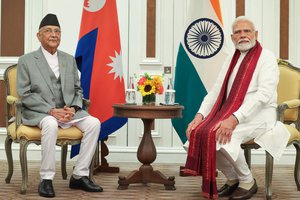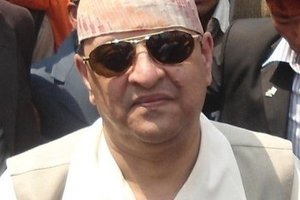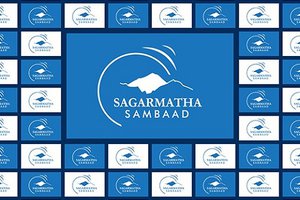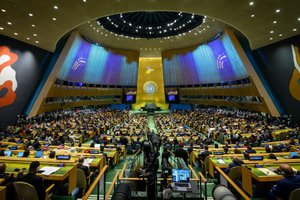Opinion

Why Political Change in Nepal Is Imminent
Every day, 2,500 to 3,000 young Nepalis leave the country in search of work. Increasingly, even students who have just completed their secondary education are going abroad, driven by a declining quality of education and a bleak job market at home. These students are unlikely to return after graduation
By Bishnu Dev Pant Apr 19, 2025
The Promises and Pitfalls of Participatory Governance in Nepal
In fact, federalism, in particular, was introduced in Nepal to devolve power and bring it closer to people—and simply put it is to actualize the theory into practice—“gharghar ma singha durbar”. In theory, the federal structure, with its emphasis on devolution, provides an ideal framework for bottom-up participatory governance.
By Dr. Chandra Lal Pandey and Prakriti Niraula Apr 18, 2025

Shaping The Future With Results-Based Evaluation: Exploring Global Insights For Sustainable Impact
Results-based evaluation is a crucial tool for assessing the effectiveness of development programs, but its success relies on overcoming challenges such as defining clear and measurable results, balancing short-term and long-term impact, addressing issues related to data quality, ensuring stakeholder engagement, and fostering adaptability despite resource constraints and organizational resistance.
By Dr. Dhruba Gautam and Mr. Dinesh Bista Apr 07, 2025
“Kolahalko Kolaj “: A Collection Of Scattered Memories By Prakash Sayami
It would not be an exaggeration to say that Collage of Noise is actually a collage of the beautiful relationship between Prakash Sayami's writing style and the time, person, event, and field within the individual image.
By Shanker Man Singh Apr 02, 2025
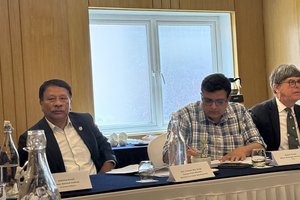
Nepal faces the multi-dimensional challenges of rapid urbanization
Our commitment to inclusive urban governance places a strong emphasis on the importance of community engagement and the integration of indigenous knowledge in the planning and development of our cities.
By Prakash Man Singh Mar 26, 2025
Localization: A Path To Socio-Economic Transformation In The Globalized World
In the era of globalization, development approaches and terminologies have evolved significantly. One of the most important concepts to have emerged in recent years is localization. This term, though not new, has gained prominence as development strategies continue to expand and diversify.
By Bimal Khatiwada Mar 24, 2025
Latest Updates
- RPP Leaders Demonstrated Inside Singhadurbar , Linden Arrested
- 17 hours, 38 minutes ago
- Foreign Minister Dr. Deuba to head to Bangkok to chair UN Meeting
- 23 hours, 17 minutes ago
- We Do, What We Say, The Government Will Not Be Afraid: RPP Leader Lingden
- 23 hours, 29 minutes ago
- Home Ministry warns RPP: Action will be taken if it violates prohibited Areas
- 23 hours, 51 minutes ago
- Minister Dahal Directed To Complete The Dannune Portion Of Road Before Monsoon
- 2 days, 23 hours ago
- RPP To Hold Protest In Restricted Areas Of Kathmandu On April 20
- 3 days ago
- Earthquake Rocks Kathmandu Valley
- 5 days ago
- Prof Dr Khadga KC assigned responsibility of TU Vice Chancellor
- 5 days ago
- It Is Time For The Congress To Take A Wise Decision: Dr. Koirala
- 6 days, 23 hours ago
- Dozens Police Personal Injured In Violent Clashes In Birgunj
- 1 week ago


